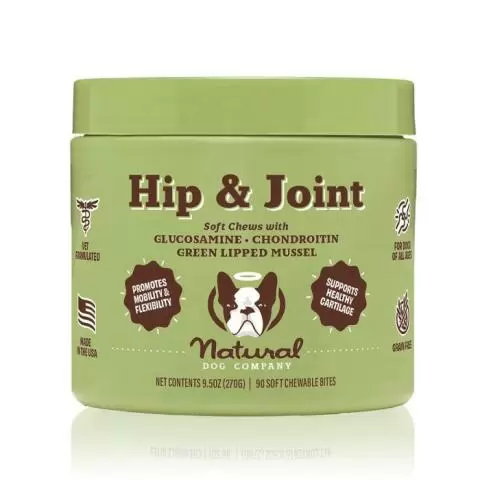Best Ideas For Selecting Pet Wellbeing Australia
Wiki Article
Omega-3 Fatty Acids May Help Pets And Felines With Their Joint Health.
Omega-3 fatty acids, particularly EPA (eicosapentaenoic acid) and DHA (docosahexaenoic acid), play a significant function in sustaining and enhancing joint health in both cats and dogs. This is how they aid:
Anti-inflammatory properties
Reduce inflammation:
Function Omega-3 fat has a powerful anti-inflammatory properties. They reduce inflammation by inhibiting the production of pro-inflammatory cytokines (and eicosanoids), which are molecules.
Omega-3s can reduce joint inflammation and alleviate swelling and pain caused by ailments like arthritis. It improves the quality of life for pets by making them more mobile.
Joint Lubrication and Health
Improved joint Lubrication
Function: Omega-3 fatty acids help keep the health of the synovial fluid, which helps to lubricate the joints.
Benefits of better lubrication A lower friction level means less wear and tear for the cartilage. This is especially beneficial for pets with joint issues or those susceptible to developing them.
Cartilage Protection and Repair
Cartilage Protection:
Function: Omega-3s decrease the activity of the enzymes that break down cartilage.
Benefits: Preventing the degradation of cartilage helps maintain joint health and can even slow the progression of diseases like osteoarthritis.
Immune System Support
Immune System Regulation:
Function: Omega-3 acids regulate immune responses, promoting the balance of inflammation.
Benefits: An immune system that's well-regulated can help to better manage joint pain. This will prevent excessive joint inflammation and damage.
Comfortable Mobility and Increased Comfort
Improved Mobility
Omega-3s have a number of benefits. They can reduce inflammation and help preserve joint structure. They allow pets to move more easily.
Benefits: Older pets or those suffering from arthritis typically have better mobility, leading to more comfortable and active life.
Additional Health Benefits
Overall Health:
Function Omega-3 fat acids be beneficial to the health of your pet's skin, coat, and cardiovascular system.
Benefits: Healthy pets are more likely to be active and have better joint health.
Utilization and Recommendations
Dosage and Administration correct dose of Omega-3s will depend on the size of the pet, weight, and specific health conditions. Follow your veterinarian's advice or the directions listed on the product label.
Omega-3s are available from fish oil supplements. They're a good source of EPA and DHA. Selecting products that are specifically designed for pets is crucial for ensuring the safety and effectiveness of your pet.
Omega-3 supplements generally have a positive impact for pets. However, a few could develop stomach issues and/or fishy breath. To minimize side effects, begin with a small dose and gradually increase the dose.
Conclusion
Omega-3 fat acids are beneficial to joint health of both cats as well as dogs. Their anti-inflammatory properties, capacity to enhance joint fluidity, protect cartilage and support the immunity system. This results in better joint functions and reduced discomfort. Regular supplementation results in better mobility and a more active, healthy life for your pet. Follow the recommended I was reading this on dogs supplements for blog recommendations including pet ashwagandha supplements, pet supplements for pets with fear of grooming tools, pet weight management, pet supplements for pets with skin allergies, pet skin and coat care, pet glucosamine supplements, pet supplements for pets with oily skin, pet supplements for pets with hair loss and more.

How Can Omega-3 Fatty Acids Help With Kidney Failure In Dogs And Cats?
Omega-3 fatty acids, particularly EPA (eicosapentaenoic acid) and DHA (docosahexaenoic acid), can help manage kidney problems in dogs as well as cats, by delivering numerous advantages that improve kidney health and overall well-being. Here's what they do to aid in managing kidney failure:
Anti-inflammatory Properties
Reduction of Inflammation
Function: Omega-3 fatty acids have strong anti-inflammatory effects, reducing the production of pro-inflammatory cytokines as well as eicosanoids.
Benefits - By decreasing the inflammation in kidneys, Omega-3s may help reduce the progression and severity of kidney damage.
Blood Pressure Regulation
Reduce Blood Pressure
Function: The omega-3 fatty acid helps to regulate blood pressure by enhancing the function of vascular vessels and reducing inflammation within the system.
Benefits: Lowering blood pressure reduces the stress on kidneys and protects the remaining kidney function.
Proteinuria Reduction
Reducing Proteinuria:
Function: Omega-3s assist in reduce proteinuria (the loss of proteins to the urine) This is a problem that is common in kidney diseases.
The benefits of decreasing proteinuria This protects kidney function and reduce further kidney injury.
Glomerular Filtration (GFR), a measurement of the rate at which a glomerular filtrate is produced, is preserved.
Helping to Retain Kidneys:
Function The Omega-3 fatty acid assists ensure the integrity of the glomerular filtering process, that is the process by kidneys that filter blood.
Benefits: Maintaining stable GFR levels is vital to maintain kidney function and also helping to prevent the development of chronic disease.
Appetite Stimulation & Nutritional Support
Improving appetite:
Function: Omega-3s may help improve appetite and overall nutritional intake of pets suffering from kidney failure, who often suffer from decreased appetite.
Benefits : A healthier diet will improve general health. It also helps maintain the muscle mass and weight of animals with kidney disease.
Cardiovascular Health
Aiding Heart Health
The function of Omega-3 fatty acid support cardiovascular health, by reducing blood pressure and inflammation and improving lipid profile.
Benefits: Better cardiovascular health will reduce the risk of complications with kidney failure, such as heart disease, and improve overall health and well-being.
Antioxidant Effects
Reducing Oxidative Stress:
Function: Omega-3 fats possess antioxidant properties, which aid in reduce the oxidative stress within kidneys.
Benefits: Lowering the stress of oxidative aging assists in protecting kidney cells from harm, supporting more efficient kidney function as well as slowing down the progression of diseases.
Tips for Use
Dosage: The dosage of omega-3 fat acids will be determined by the weight, size and health requirements of your pet. Follow the recommendations of your veterinarian or the instructions on the label. Omega-3s are commonly present in fish oil supplements specifically designed for pet use.
Omega-3 supplements are available in a variety of varieties. They are available in liquid oils, capsules, and chewables. Select a high-quality product to ensure your pet's safety.
Omega-3 supplements generally are safe for pets, but they may cause upset stomachs. To avoid any adverse effects, start with a small dose and gradually increase the dosage. It is important to watch out for any side consequences, such as vomiting or diarrhea.
The conclusion of the article is:
Omega-3 fatty acids can have a positive impact on kidney function in cats and dogs. Their anti-inflammatory, blood pressure-lowering, proteinuria-reducing, and appetite-stimulating properties help support kidney function and overall health. Regular omega-3 supplementation can improve the quality of life and well-being in animals suffering from kidney disease. View the most popular kidney failure in dogs for more recommendations including pet anxiety supplements, pet liver supplements, pet supplements for pets with skin conditions, pet supplements for shelter pets, pet supplements for pets with aggression problems, pet egg protein supplements, pet memory supplements, herbal pet treatments and more.

What Is The Cranberry Extract Used For In The Treatment Of Kidney Failure?
The extract of cranberry can be beneficial to pets and dogs suffering from kidney problems, principally due to its properties that help maintain urinary tract health and prevent infections. What cranberry does is:
Prevention of Urinary Tract Infections
Antimicrobial Properties:
The function: Cranberries contain proanthocyanidins (PACs) which stop bacteria, specifically E. coli, from adhering to the membrane of the urinary tract.
Benefits In preventing the adhesion of bacterial and reducing bacterial adhesion, cranberry extract may help lower the risk of UTIs. UTIs are known to exacerbate kidney problems, therefore preventing them is important for keeping the overall health of your kidneys.
Antioxidant Effects
Reduce the Oxidative Stress
Function: Cranberries contain antioxidants, such as flavonoids and vitamin C.
Benefits Antioxidants neutralize free radicals reducing stress caused by oxidative processes and protect kidney cells. This can help slow down the progression of kidney problems and enhance kidney function.
Anti-inflammatory properties
Reduction of Inflammation
Function: Cranberry has anti-inflammatory properties, which help lower inflammation in the urinary tract.
Benefits. Inflammation reduction can ease discomfort in the urinary track as well as the kidneys. It also aids in the healing process.
Support for Urine Acidification
Urine Acidification
Function: Cranberries have the ability to reduce the pH level of urine. This can make the urinary environment more hostile for bacteria.
Benefits: Acidified urine helps to in preventing the growth of the bacteria that create infections. This is particularly beneficial for pets with kidney dysfunction which are more susceptible to UTIs.
Diuretic Effects
Urine flow:
Cranberry extracts are mildly diuretic and can increase the flow of urine.
Benefits Increased urine flows help flush out the toxins, bacteria and other pollutants out of the urinary tract. This reduces the risk of infection and supports kidney function.
Use and Considerations
Dosage and Administration: The proper dosage of cranberry extract will depend on the pet's size and weight as well as specific health issues. It is recommended to adhere to the advice of your vet. Cranberry supplements for dogs and cats are available in various varieties.
Quality of Supplement: Use quality, high-quality cranberry supplements that are standardized to make sure that you are safe. Specially designed products for pets are preferred.
Effects on the body: Cranberry is generally considered safe for pets, although there are some who experience digestive issues. It is possible to reduce the risk of side adverse effects by beginning with a smaller dose and then increasing the dosage. Additionally, it is essential to be aware of any adverse reactions in pets, such as diarrhea and vomiting.
Conclusion
Cranberry extract may help support kidney health in dogs as well as cats by protecting urinary tract infections, reducing inflammation and oxidative stress and promoting urine flow. These benefits help maintain overall kidney function and improve the health of pets with kidney failure. Under the supervision of a veterinarian and consistent use, it is an excellent supplement to the treatment of animals suffering from kidney disease. See the top rated on the main page about kidney failure in cats for website tips including cushings disease alternatives, pet bone supplements, pet lactation supplements, pet wellbeing cushings care kit, pet supplements for pets with fear of nail trimming, pet supplements for pets with luxating patella, pet supplements for pets with separation anxiety, pet slippery elm supplements and more.
